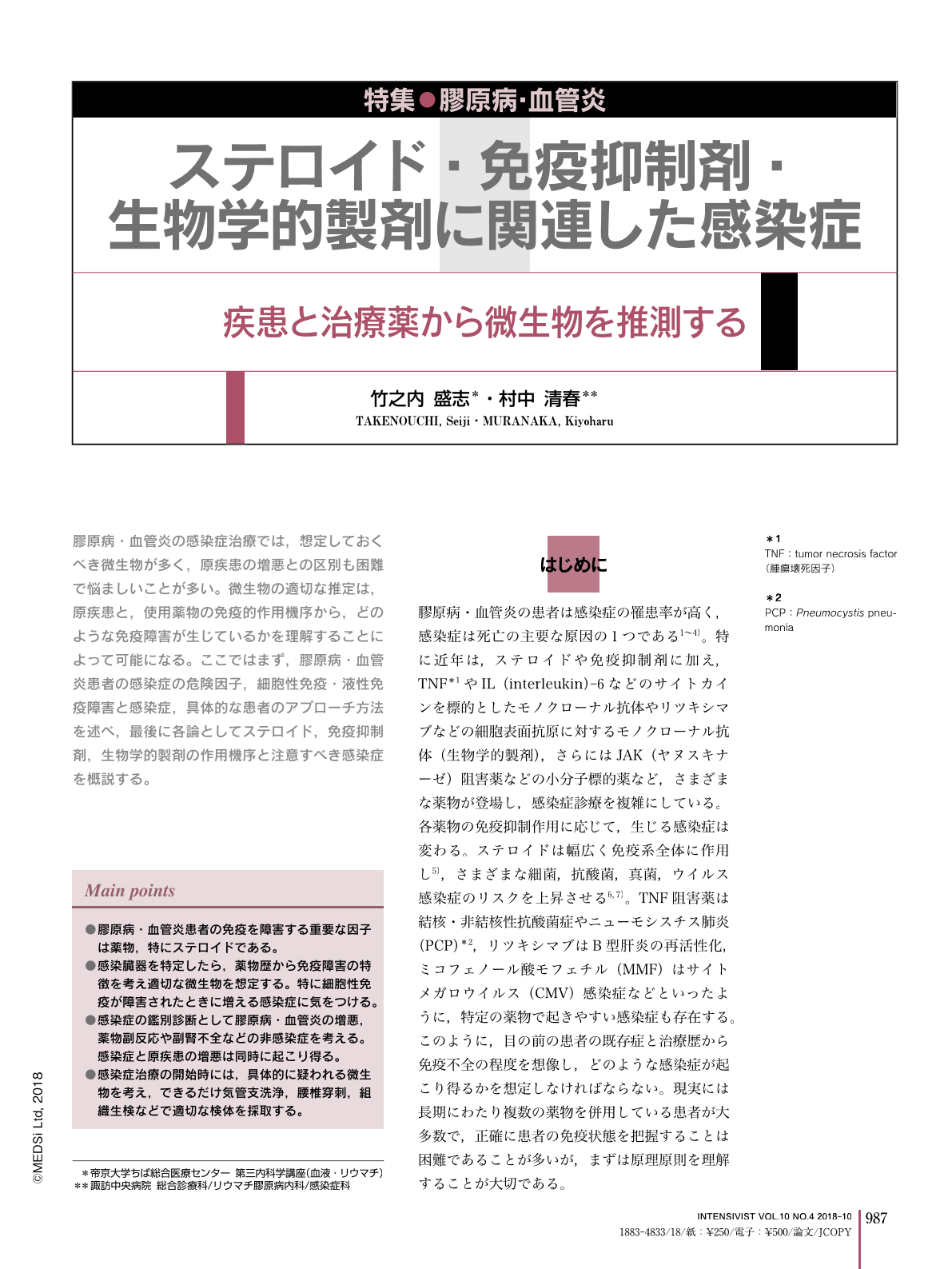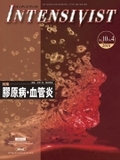Japanese
English
- 有料閲覧
- Abstract 文献概要
- 1ページ目 Look Inside
- 参考文献 Reference
膠原病・血管炎の感染症治療では,想定しておくべき微生物が多く,原疾患の増悪との区別も困難で悩ましいことが多い。微生物の適切な推定は,原疾患と,使用薬物の免疫的作用機序から,どのような免疫障害が生じているかを理解することによって可能になる。ここではまず,膠原病・血管炎患者の感染症の危険因子,細胞性免疫・液性免疫障害と感染症,具体的な患者のアプローチ方法を述べ,最後に各論としてステロイド,免疫抑制剤,生物学的製剤の作用機序と注意すべき感染症を概説する。
Main points
●膠原病・血管炎患者の免疫を障害する重要な因子は薬物,特にステロイドである。
●感染臓器を特定したら,薬物歴から免疫障害の特徴を考え適切な微生物を想定する。特に細胞性免疫が障害されたときに増える感染症に気をつける。
●感染症の鑑別診断として膠原病・血管炎の増悪,薬物副反応や副腎不全などの非感染症を考える。感染症と原疾患の増悪は同時に起こり得る。
●感染症治療の開始時には,具体的に疑われる微生物を考え,できるだけ気管支洗浄,腰椎穿刺,組織生検などで適切な検体を採取する。
Infections in patients with rheumatic diseases remain a significant cause of morbidity and mortality. In addition to the nature of the underlying disease and comorbidities, immunosuppressive treatment results in an increased risk for developing serious and opportunistic infections. Therefore, it is necessary to understand the immunological characteristics of each drug and what infectious diseases are associated with their use. Generally speaking, we should pay attention not to general bacterial infections but also to microorganisms which are associated with impaired cellular immunity, namely mycobacterial and fungal infections, herpes zoster and other viral infections, although the influence on immunity differs for each medicine. In this review, cellular and humoral immunity are illustrated in terms of recent immunologic understanding, and the infectious diseases caused by deficient cellular immunity are discussed. We then explain specific approaches to the diagnosis of infections in patients with rheumatic disease along with various tips such as differentiation from an exacerbation of the underlying disease, adverse drugs reaction, and the influence of steroids. This review then summarizes immunological mechanisms based on recent literature regarding infectious diseases associated with immunosuppressive drugs such as glucocorticoids, immunosuppressive agents, and biologic agents.

Copyright © 2018, MEDICAL SCIENCES INTERNATIONAL, LTD. All rights reserved.


